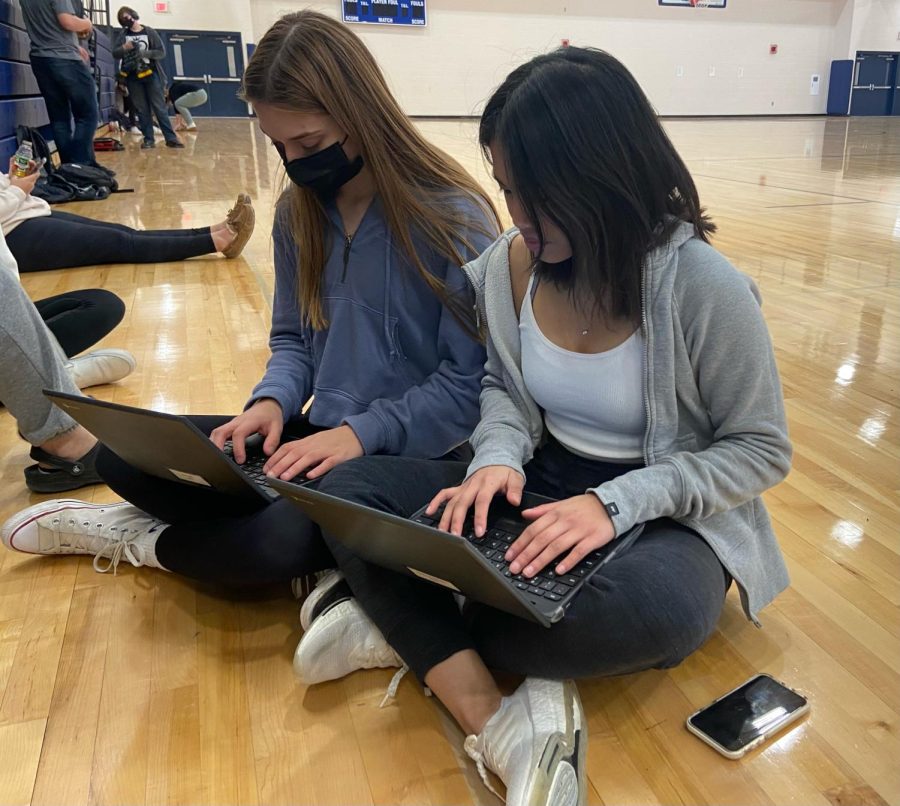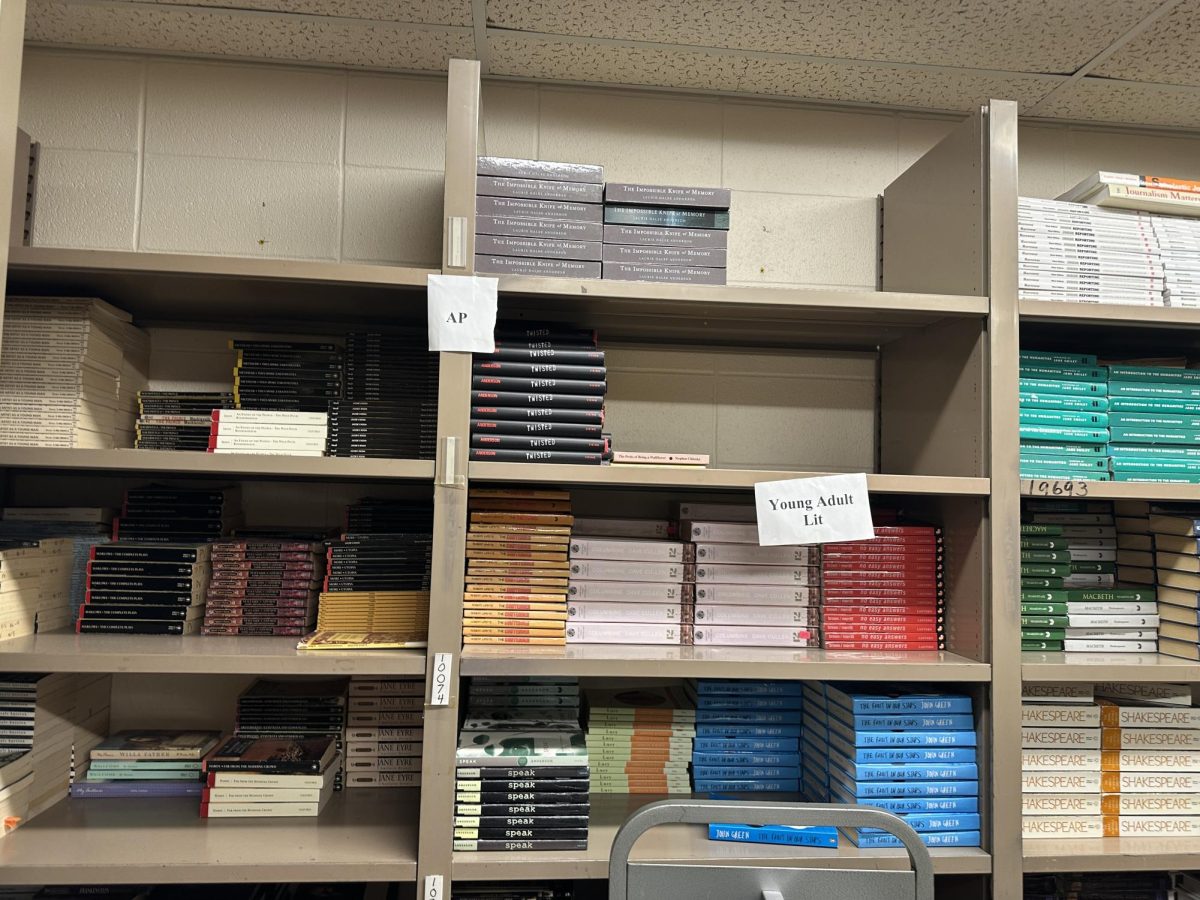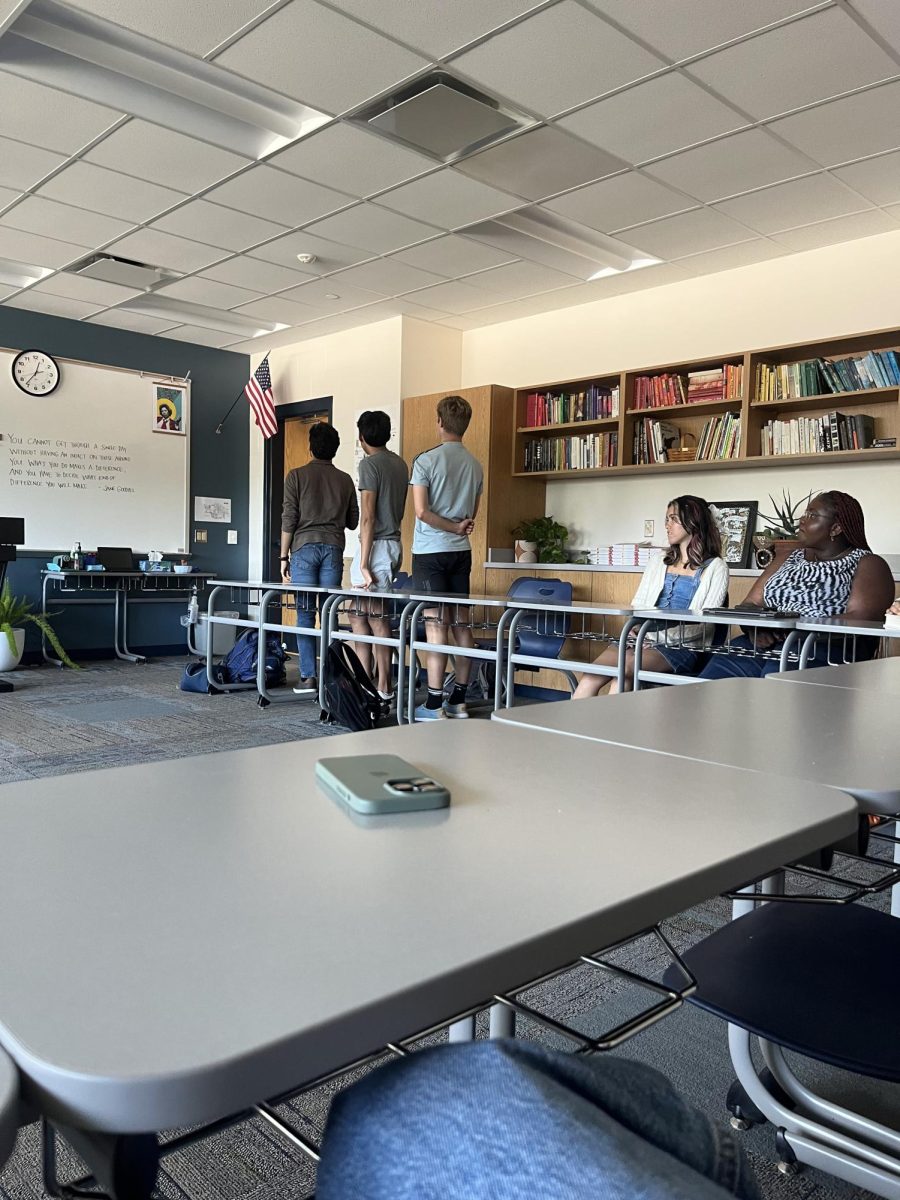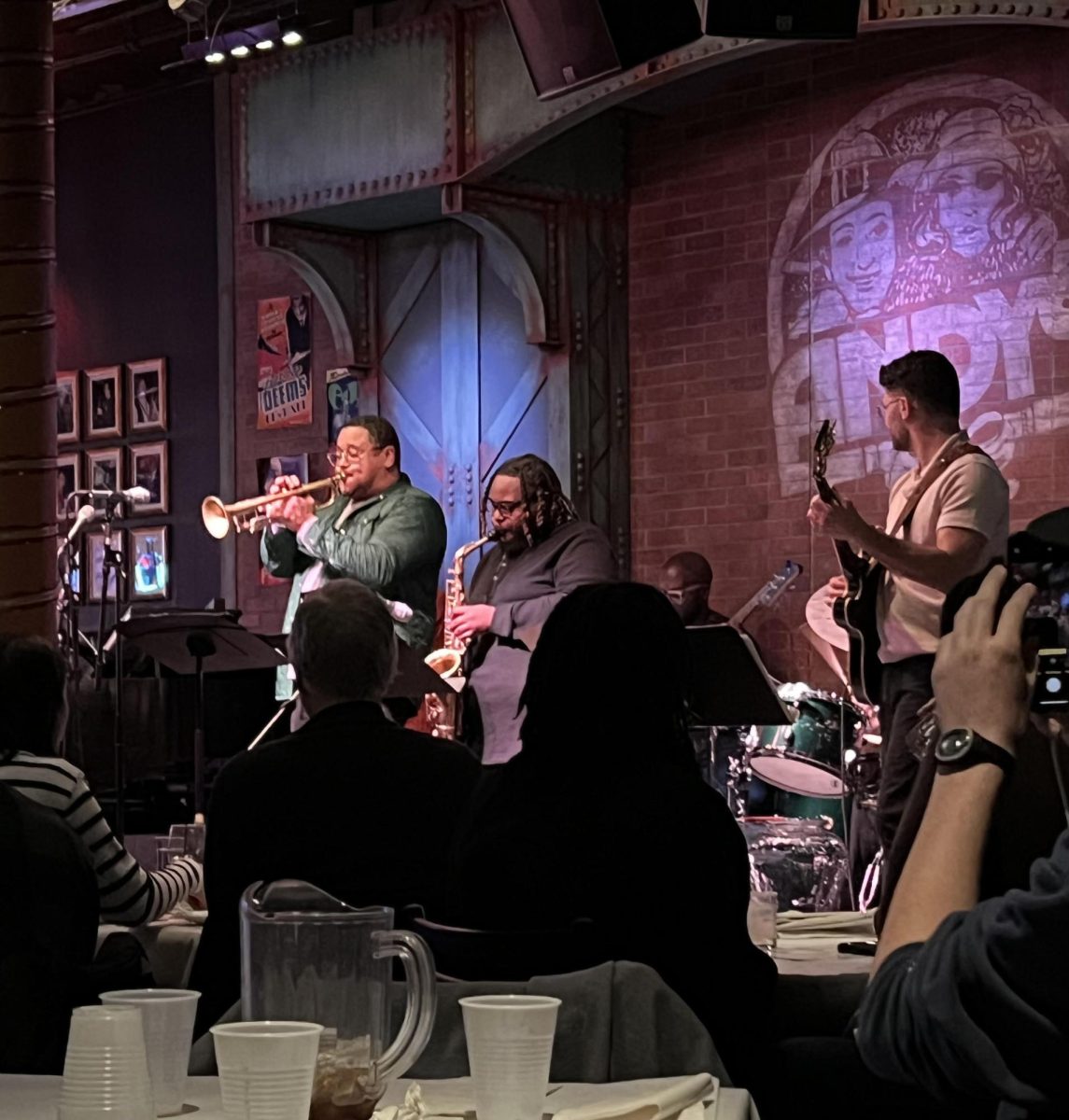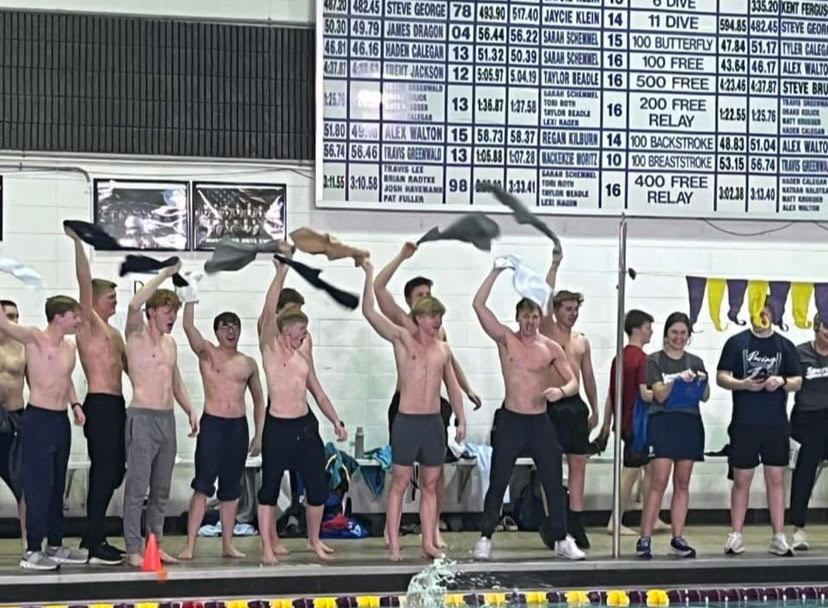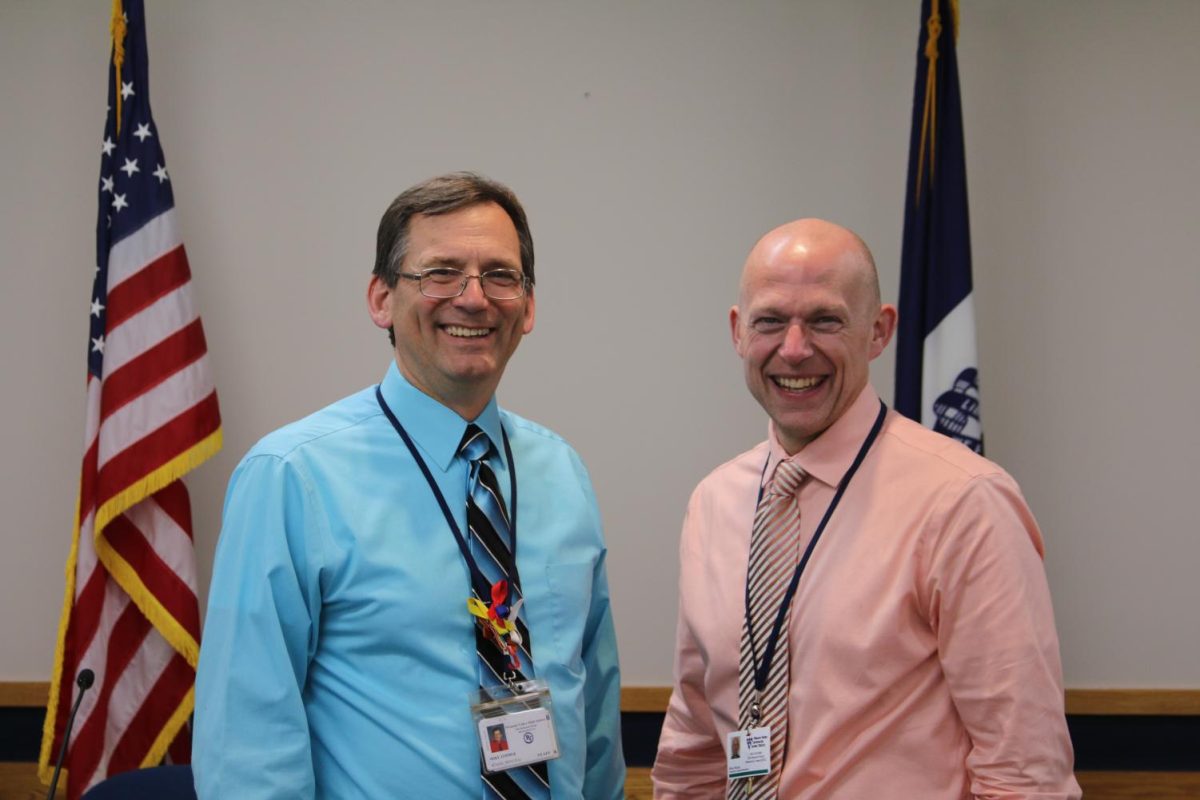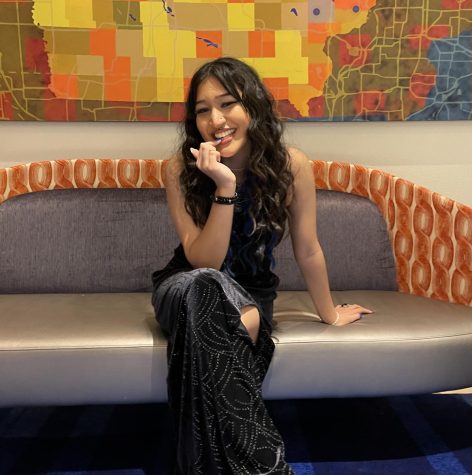The purpose of an American education should be to provide students around the nation with the opportunities to learn, flourish and naturally figure out what they want to do in adulthood. Unfortunately, American schools have not fulfilled this purpose because from a young age, they indoctrinate children into believing college is the only option after high school.
Senior Clayton Shelton has been successful in working for his apprenticeship but still recognized the push from both his family and society to go to college after high school. “Both of my parents went to college, but they have been very open about it being my choice. On the other hand, I have my grandparents, and my grandpa tells me: ‘you have to go to college.’ In my home life, I have been pushed to go to college,” he said. “I feel like society is the same way. You are pushed to go to a four year college, because if you don’t, you won’t be successful. Obviously, that’s not true.”
Several jobs require onsite experience that is best achieved through apprenticeships, trade schools and other non-college options. Members of society who do not do hands-on jobs often overlook the importance of these positions for the function of our society and the work it takes to be qualified for them. People who study at universities in hopes of getting high earning jobs as engineers, doctors or lawyers tend to look down upon those who do not go to college right after high school
Shelton explained the hard work that goes into his apprenticeship. “I have to get a certification after 4,000 hours for C & C machining, which is what I am doing. If you don’t have that, you can’t get the job,” he said. “[While] someone is going to a four or two year college, I am doing two years of work and job experience to get that certification. It is the same principle, but my learning is doing the work at the workplace instead of doing the classwork.”
To underestimate the work students like Shelton put in to prepare for careers they are passionate about and are necessary for society is beyond dishonorable.
Counselor Leslie Spiller addressed the significance of how the staff at a school impacts students’ post-secondary plans. “I think the other part that is hard is the people that work in education have to go to college typically,” she said. “Their worldview is normally, ‘I had to go to college to be a teacher, a counselor or an administrator,’ so sometimes we lean on what we know and what we experience.”
It may seem like this problem is unfixable, but the solution is allowing students to explore more career options and meet different kinds of people to do so. Spiller commented on how even though the required career and college seminar course is a step in the right direction for PV, there is more it could be doing to dissolve its strong push towards a single post-secondary option. “For example, PV could provide more career days or ways to see people. That probably starts in middle school, or even elementary, to understand what those different options are. Our view of careers is very limited by who we interact with,” Spiller said.
She acknowledged the difficulty of this due to COVID, but perhaps the real struggle is not just how society fails to help students understand they have many future options. Schools are not to be blamed completely for this flaw because, to an extent, they reflect the values of American society.
In America’s market economy, the highest paid jobs require the most education and are valued most by society. Capitalism has prevented people from realizing that all jobs are important because together, the labor force runs society, and without people doing jobs that they are certified to do and care about, everything will fall apart. There is a huge demand in these types of jobs, and many are unaware of how much society relies on them.
Senior Taheera Amra commented on the significance of all jobs, not just those occupied by people with more experience in higher education. “As a society we should value workers without a college degree because they are also a necessary part of the economy,” she said.
Since this notion is drilled into the minds of Americans, it seems difficult to make school a place where students can just freely learn without the pressures of knowing what they need to do after high school, whether or not they can afford it and if people will criticize them or look down on them for what they choose to pursue.
In his book titled “Excellent Sheep: The Miseducation of the American Elite,” William Deresiewicz detailed the beauty of what true learning in school looks like. “The boundaries come down, and somehow you are thinking about yourself and the world at the same time, thinking and feeling at the same time, and instead of seeing things as separate parts, you see them as a whole,” he wrote.
School should be an experience, not a task. Education is the realm in which humans can freely explore what they love to learn and practice. To strictly promote college as the main goal after high school damages the years that could be the most impressionable and life-changing for a student. American culture must shift its perception of post-secondary options besides college because students should not be limited in learning and working.


